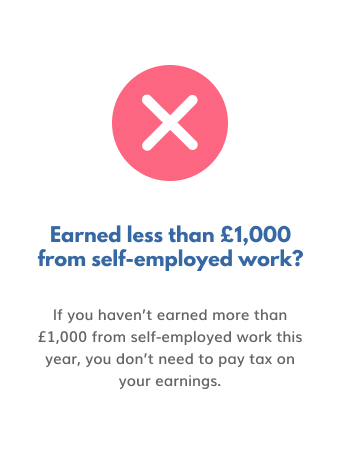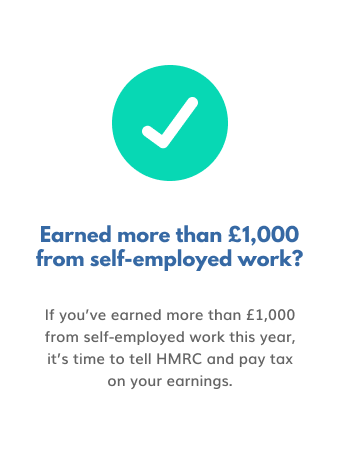

How Do I Become a Freelancer?
Being a freelancer means you get to be your own boss, deciding when, where, and how you work. It gives you the flexibility to choose projects that you’re really interested in and that match your skills. Plus, you can often set your own rates, potentially earning more than you would in a traditional job. You could even set up a freelance side-hustle alongside your regular job!
Being a freelancer also comes with certain responsibilities and involves a few key steps in getting things right. Not sure where to start? Here’s a quick guide to help you become a freelancer. You can also find more guides and templates in our resource centre for freelancers.
Choose your freelance skill set
Identify your skills and strengths. Freelancers often offer services like writing, graphic design, programming, or marketing, but there aren’t any rules or restrictions. It can help to pick something you enjoy if you’re doing this in your spare time outside of regular employment, but it’s not a requirement!
Register as a self-employed freelancer
Being a freelancer means you’re classed as self-employed, even if you’re also considered employed because you’re working for someone else at the same time. You’ll need to tell HMRC about the self-employed part of your earnings by registering a business and submitting tax returns.
For most freelancers this means becoming a sole trader and submitting a tax return using either Self Assessment or MTD Income Tax – depending on how much you make from self-employment.
The trading allowance for freelancers
The good news is that freelancers can use the trading allowance to earn up to £1,000 from self-employment during a tax year without needing to report it to HMRC or pay tax on it.
Just make sure you keep good records of all your freelance earnings – especially as digital platforms (such as Fiverr and Upwork) must report data to HMRC about what users earn through the site. And remember; the trading allowance is a total for the tax year – not a separate allowance for each platform or source of income.


If you do cross the £1,000 threshold, then you’ll need to tell HMRC. Start by visiting the HMRC website and create a Government Gateway account if you don’t already have one. Once registered, you can sign up for Self Assessment.
Understand what tax and National Insurance you need to pay
A freelancer’s tax obligations typically include income tax and National Insurance contributions (NICs). Income tax is calculated based on your total earnings, taking into account any allowable business expenses. You’ll pay tax on the profit left over once you deduct your expenses – not on the full amount of income – which is another reason to keep detailed records!
You might also need to pay Class 4 National Insurance contributions on any self-employment profits you get over the £12,570 threshold. It’s totally separate to any NI you might also pay as an employee.
Make sure you set aside money for your tax bill, so you don’t get a nasty shock when it’s time to pay. The key here is to stay organised, and get professional advice if needed!
You might also need to make student loan repayments, depending on your circumstances.
Set your rates
Working out what to charge clients for your services can be nerve-wracking! Start by researching what other freelancers in your field are charging and factor in your skills, costs, and experience. Finding the sweet spot between over-charging or under-charging can be a delicate balance at times, so don’t be afraid to negotiate with customers.
There are all sorts of considerations, so we go into this in more detail in a separate article about setting fees for your services.
Create contracts and invoices
When you get a new client, always have a clear contract outlining the scope of work, payment terms, and deadlines. This helps protect both you and them. It’s also important to get your invoicing right for the best chance of getting paid in full and on time.
Your invoices should include essential details such as your full name and/or business name, contact information, and the client’s details. Clearly show the invoice date and due date for payment, and provide a unique invoice number for reference.
Finally, make sure you itemise your services with a description, quantity, and rate for each task you’ve completed, calculating the total amount owed. Specify the payment terms and methods accepted and include your preferred payment details.
Maintain thorough up-to-date records (of everything!)
We can’t emphasise this enough! Keep track of your income, expenses, and deadlines. Good bookkeeping will be an enormous help when it comes to managing payments and sorting out your tax return.
Find out more about our online accounting services for freelancers, startups, and small businesses. Talk to one of the team on 020 3355 4047, or get an instant online quote.
Want to learn more?
Subscribe to our newsletter to get accounting tips like this right to your inbox

Read more posts...

The Accountancy Partnership – Our Positive Reviews
16th February 2026We’re proud of our customers’ reviews here at The Accountancy Partnership The reviews we receive from our customers show how hard we…
Read More
Maternity Pay for Self-Employed People
15th February 2026As a self-employed person you might be eligible to get Maternity Allowance payments for up to 39 weeks. It’s different to Statutory…
Read More
National Insurance for the Self-Employed
14th February 2026If you work for your own self-employed business, then you may need to pay National Insurance on the profits that you earn….
Read MoreConfirm Transactions
The number of monthly transactions you have entered based on your turnover seem high. A transaction is one bookkeeping entry such as a sale, purchase, payment or receipt. Are you sure this is correct?
Please contact our sales team if you’re unsure
VAT Returns
It is unlikely you will need this service, unless you are voluntarily registered for VAT.
Are you sure this is correct?
Call us on 020 3355 4047 if you’re not sure.
MTD IT Quarterly Updates
Your final, end of year MTD Income Tax submission is included in your fee, without this add-on service.
We would recommend you submit the quarterly updates yourself using Pandle or alternative bookkeeping software.
However, if you would prefer us to submit these quarterly updates for you, there is an additional fee of £35.00 per month.
Call us on 020 3355 4047 if you’re not sure.
Bookkeeping
You will receive our bookkeeping software Pandle for free, as part of your package.
You can use this to complete your own bookkeeping, or we can provide a quote to complete your bookkeeping for you.
Please select and option below:
Call us on 020 3355 4047 if you’re not sure.

